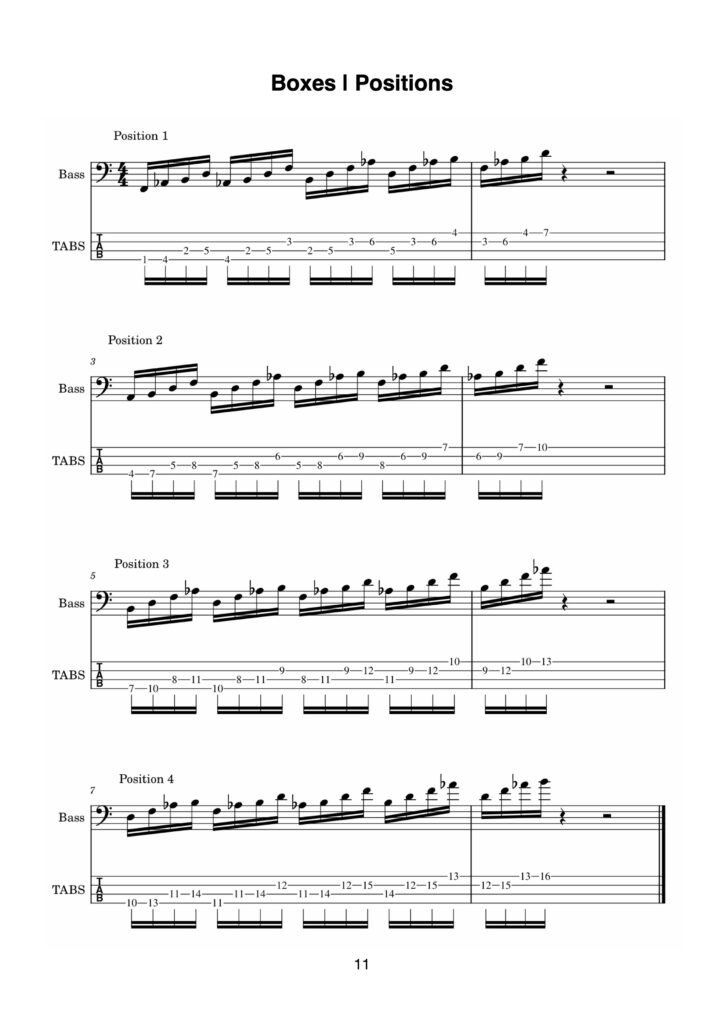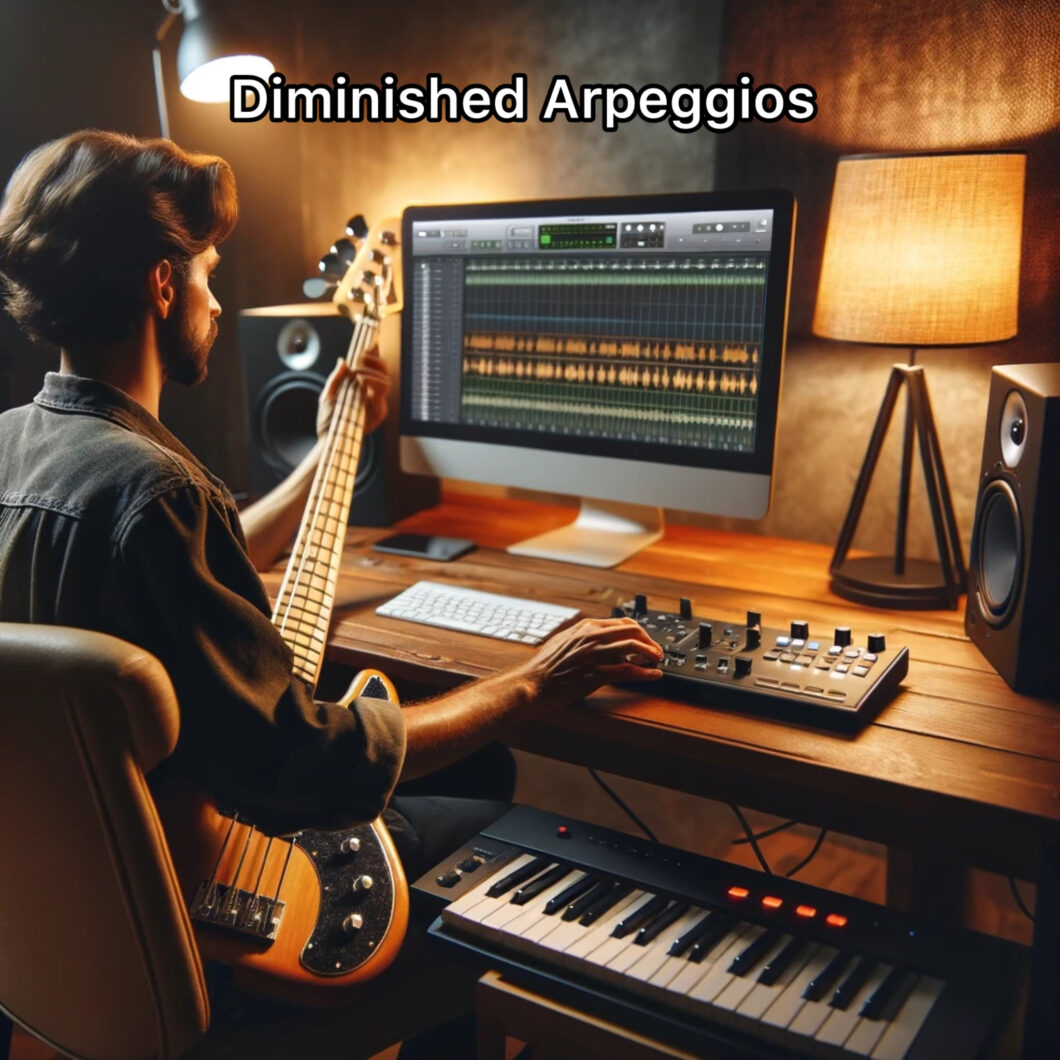A diminished triad is a critical component of a bass guitarist’s toolkit, composed of a root note, a minor third and a diminished fifth. The root gives the chord its name, the minor third sets a somber tone, and the diminished fifth, also known as the flat fifth, adds the distinctive tension we associate with the chord’s diminished quality.
When bassists expand this triad into a diminished arpeggio, it opens up a multitude of opportunities to enrich bass lines, fill and solos. It’s particularly effective over chords like Bdim7 and G7b9, where its tense and unresolved sound can add flair to your playing.
Here’s a tip for those integrating diminished arpeggios into their practice: approach it as an extension of the triad, adding one more note for a fuller arpeggiated sequence. Getting comfortable with this early on is advantageous for any bass player looking to advance their technical range.
Practice the diminished arpeggio just as you would any other triad based exercise, but remember to lower the fifth by a semitone. This might seem like a small alteration, but it’s crucial for achieving the unique sound of the diminished chord.
Whether you’re a self taught or a seasoned player, understanding and utilising the diminished arpeggio is essential for a well rounded approach.

